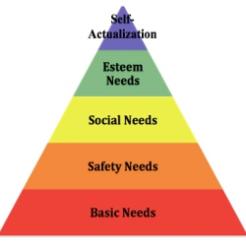We don't have to be Christian to do good things, Mr Cameron. By Robert Ashton.
I’ve been away from these pages for a few months. Have you missed me? My time has been spent writing a book. Not my first, but my 17th. I can tell you, it doesn’t get any easier. But I have learned from experience that the best writing is always done closest to the deadline. As any bid writer will undoubtable agree, here’s nothing quite like urgency to prompt creativity.
Oddly, the new book reminds me of David Cameron. Now you might find that thought disturbing, so let me explain. My new book is about sales. I wrote it firmly believing that while few would wish to be called a salesperson, everyone could benefit from being able to sell.
And so it seems it is with our Prime Minister and Christianity. “We a Christian country,” he said, even though few feel strongly enough to go to church. I guess he was talking about moral values and, according to those who commented on the Guardian website, playing for votes too. You no more have to be a Christian to do good than you need to be a salesperson to be persuasive.
I won’t labour the comparison between sales and faith, other than perhaps to say that in both cases, it’s the underpinning principles that matter most. You don’t have to be a sales person to be able to sell, nor do you need any faith to care about others.
I was reminded of this last point the other day. Someone familiar with my work had picked up that colleagues in his organisation were questioning my motives. “They find it hard to accept that anyone these days is altruistic,” my friend said, “so they’re looking for the catch.”
Actually there was no catch. I, and I suspect millions of others, really do act for the common good from time to time. Of course self-interest is important too (we all have bills to pay) but no amount of money can buy the happiness you achieve from doing ‘the right thing’ for the benefit of others. Once that is you have the basics covered.
Indeed there have to be benefits to altruism, or people would not be altruistic. As a social entrepreneur I am motivated by the social impact my work can have. In my case it’s the satisfaction of knowing that my social business is helping young people experiencing the kinds of barriers I encountered more than 40 years ago. Altruism is so often the result of personal experience of injustice or inequality.
My guess is that altruism grows with age and affluence. Once you have enough to live on, it’s far easier to devote your energy to helping others. Abraham Maslow knew this, placing self-actualisation at the top of his hierarchy of needs. He knew, as do we all, that you need to be fed, housed, in work and happy in your relationship before you can begin to think about helping others.
Living in the US as a Jewish exile from Russia, Maslow must have questioned the value of any country calling itself Christian. In a 1939 census 95 per cent of Germans considered themselves Protestant or Catholic. I guess you’ll agree that it’s not what you say you are that matters, but what you do!









